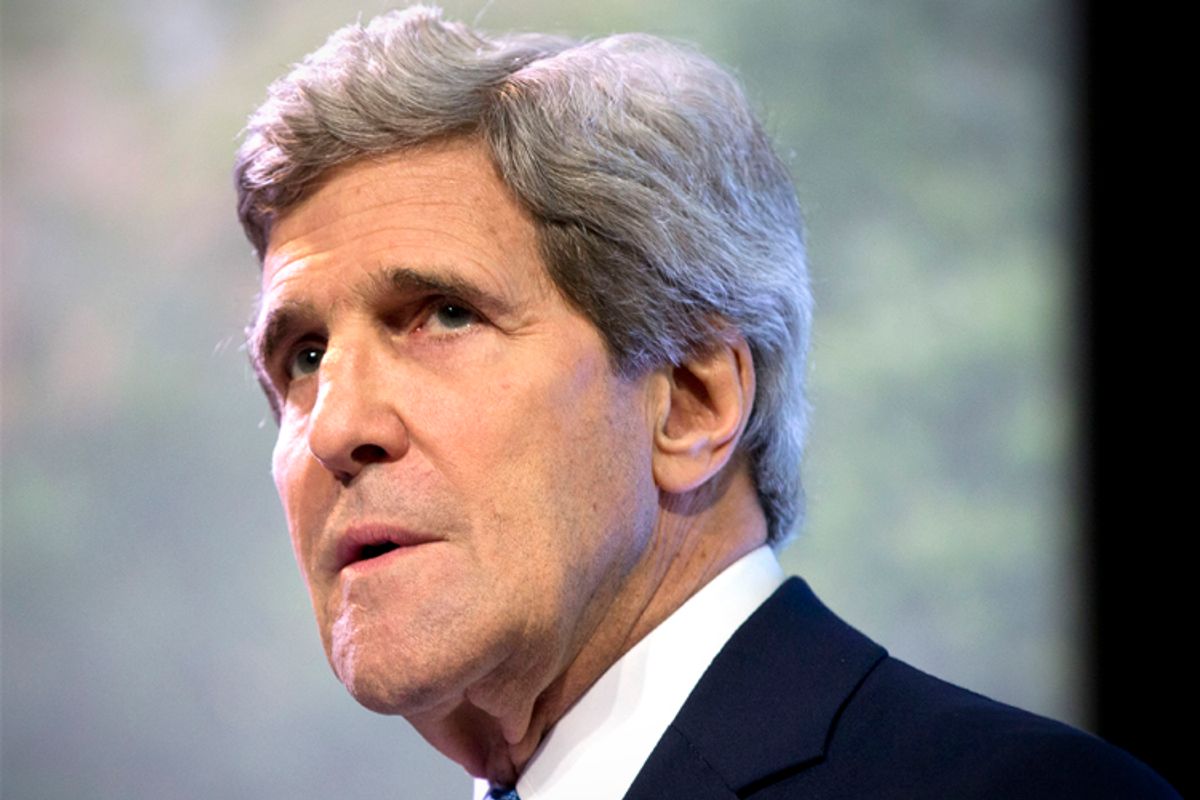In Indonesia on Sunday, Secretary of State John Kerry boldly called for international action on climate change. He did not mince words when he called climate change “perhaps the world’s most fearsome weapon of mass destruction.”
Given his hesitance to weigh in on the State Department’s anemic position on the Keystone XL pipeline, Kerry’s words come across as hollow
All of peer-reviewed science would say that Kerry’s language is accurate and hardly hyperbole. It is refreshing to see that some mainstream policy makers have elevated climate change to the same level of importance held by WMD’s. Perhaps the issue of climate change will get as much attention as have WMD’s in Syria and, under the previous administration, in Iraq.
However, given his hesitance to weigh in on the State Department’s anemic position on the Keystone XL pipeline, Kerry’s words come across as hollow. It is interesting that Kerry has rhetorically elevated the issue of climate change to be on par with WMDs, given that his State Department has not appreciated the implications of the pipeline from an environmental, diplomatic, and symbolic standpoint. The State Department’s recent report disappointed environmentalists due to the potential conflict of interest of those who worked on the report. The report also didn’t highlight the fact that the completed pipeline could add the equivalent emissions of 37.7 million automobiles or 51 new coal plants.
A troubling disconnect emerges: If climate change is a threat comparable to that posed by weapons of mass destruction, shouldn’t we put a halt to such a weapon on our own continent? Perhaps this inconsistency is not surprising given that both the current and preceding White House administrations have criticized weapons of mass destruction in the hands of others, but fail to provide leadership on landmines, white phosphorus, depleted uranium, cluster munitions, nuclear disarmament, and, of course, climate change. We are quite selective in what we label as a weapon of mass destruction.
While Kerry publicly calls for other countries to join the United States in taking a strong stance against climate change, he remains silent on the Keystone pipeline. He seems unwilling or unable to muster the bureaucratic resolve to take a stronger stance on climate change mitigation in the Western hemisphere. Kerry said to the crowd in Indonesia that South East Asia is “on the front lines of climate change,” yet it seems he does not yet see that both international and domestic fronts are the same in a war where emissions ignore cartographic boundaries.
Kerry has gone “abroad in search of monsters to destroy” without confronting the monster of bureaucratic inaction within his own agency and the wider administration. Even those who claim the pipeline would make little net impact on climate change should at least see the strategic value of consistency in our climate change diplomacy. Stopping the pipeline will of course not by itself stop runaway climate change in its tracks, but it certainly would send a strong diplomatic message to the rest of the world that the United States — the nation that has been dragging its feet since Kyoto — is finally really to lead and be the world’s best hope on this issue.

Shares